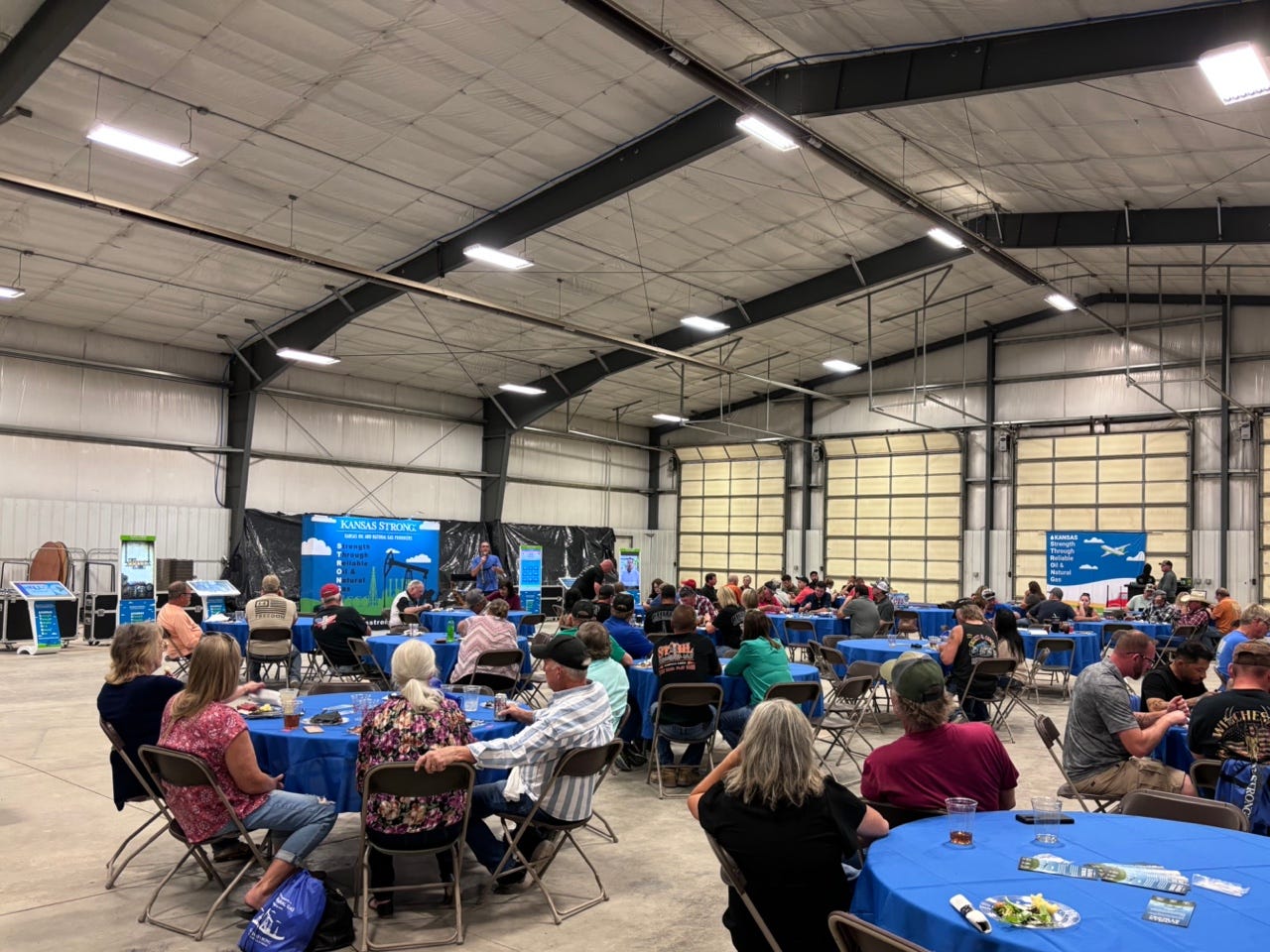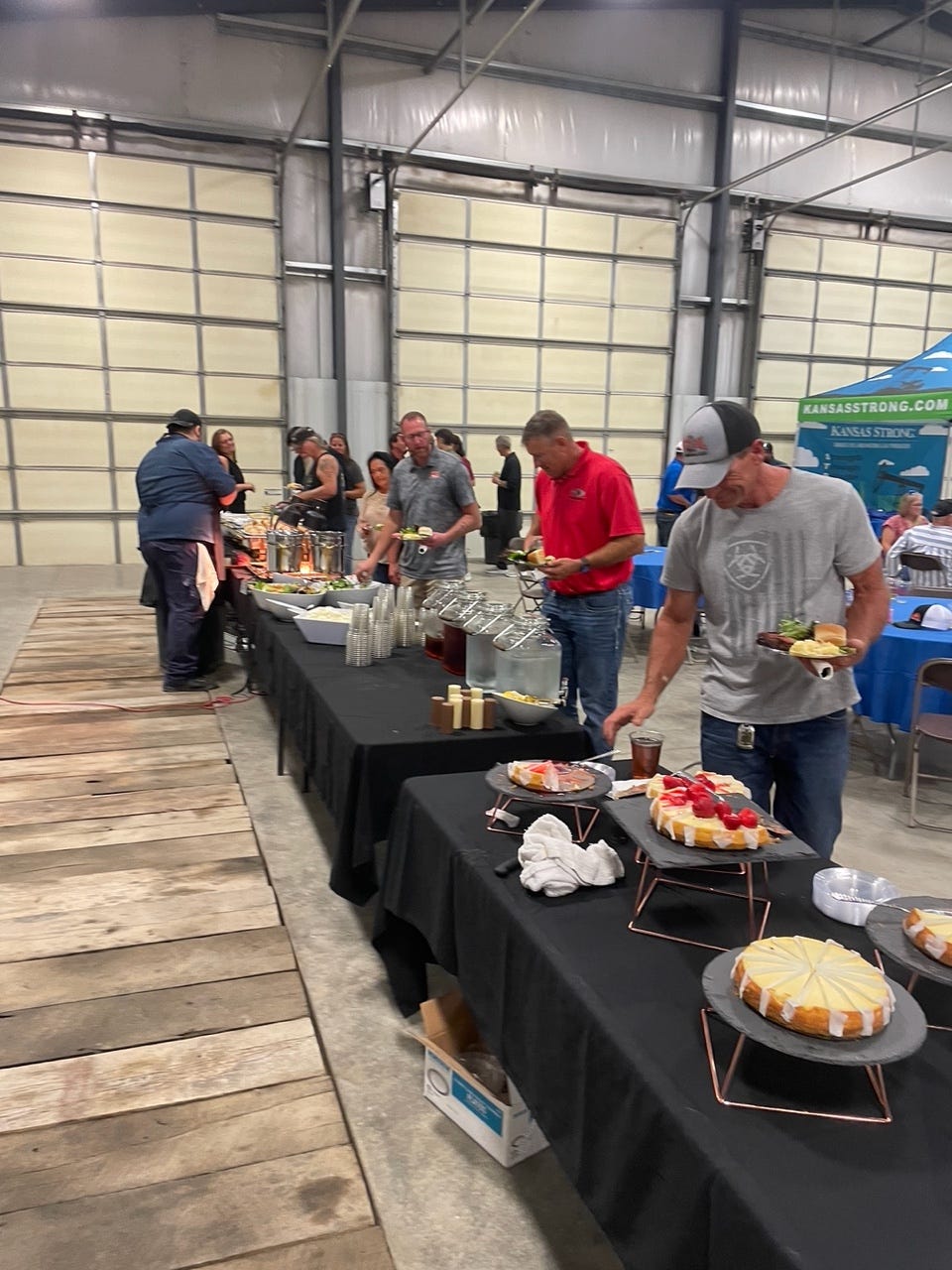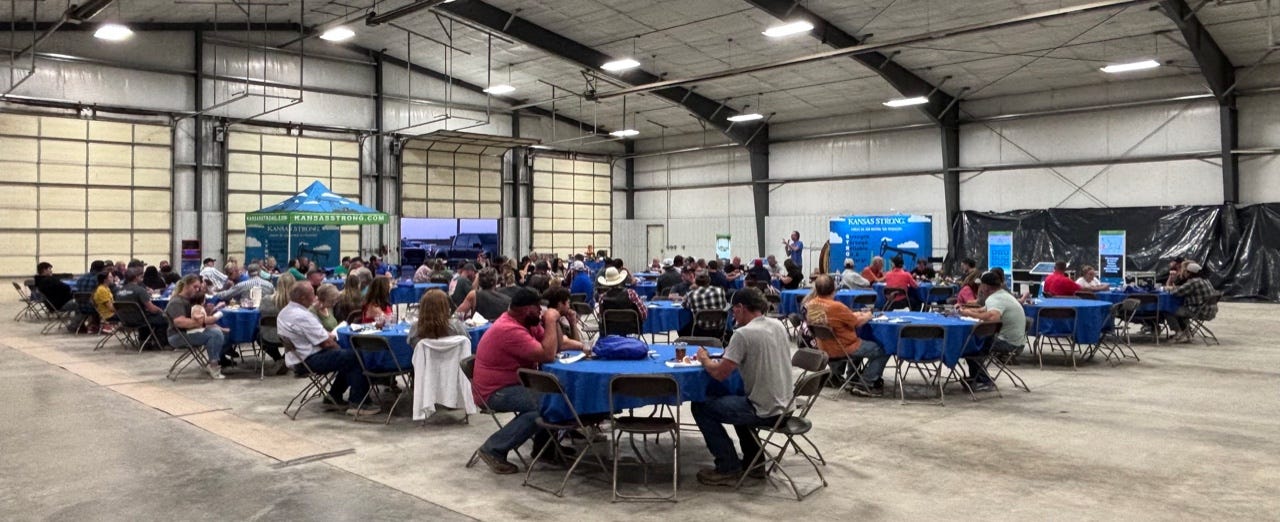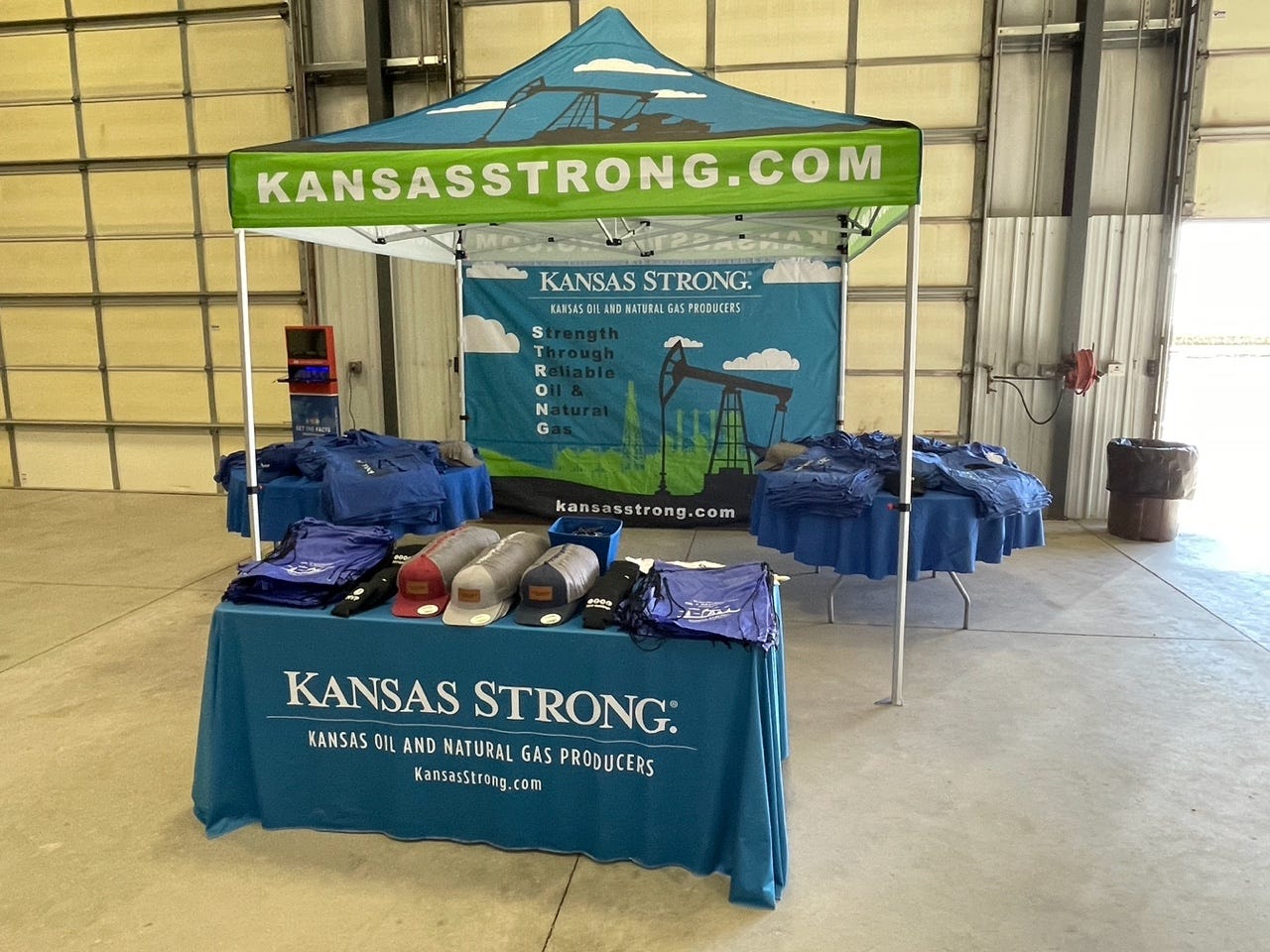Warren Martin, executive director, Kansas Strong, joins This Week In Energy to give an update on several oil and gas issues, talk Touchdown for Teachers and Customer Appreciation Dinners.
Martin started with discussing the impacts of methane regulation on smaller operators.
“We've been kind of talking about this and it's been an issue for a long time,” Martin said. “In recent days, several organizations have gotten together and filed a motion with the Supreme Court of the United States to issue an injunction to stop the implementation of these methane reduction protocols going forward by the EPA until it can be reviewed and everyone knows exactly what they are.”
The Supreme Court left in place two Biden administration environmental regulations aimed at “reducing industry emissions of planet-warming methane”.
The regulations are part of a broader effort by the Biden administration aimed at curbing climate change that includes financial incentives to buy electric vehicles and upgrade infrastructure, and rules tightening tailpipe pollution standards for cars and trucks.
The industry groups and states had argued the EPA overstepped its authority and set unattainable standards with the new regulations. The EPA, though, said the rules are squarely within its legal responsibilities and would protect the public.
“The states then have to come up with how are we going to regulate this?” Martin asked in a peppering of questions. “How are we going to monitor this? How are we going to assess this?”
He continued saying that a lot of the states are really in the position. that they don't want to touch it.
“It's an unfunded mandate and they're looking at how many man hours it's going to take to be able to do this methane emission monitoring to take place,” Martin said. “They don't want it. And so really no set protocols have been put in place, no set taxes have been put in place. And it's really an unpredictable line item that's on a lot of oil and gas producers' budgets here in Kansas that began January 1st, and we still have no idea what it's going to cost us.”
Touchdown for Teachers is a program sponsored by Kansas Strong that donates $100 for each touchdown scored by the University of Kansas football team.
“So every time that the University of Kansas scores a touchdown we put $100 into a kitty, and last year, I believe it was $5,900 that we gave to a teacher,” Martin said. “So all the teachers that sign up we draw one of them out of the hat, and we gave it to a teacher last year who was a shop teacher that taught taught shop and mechanics, and they used the money to build a Hovercraft as a as a school project.”

“So any Kansas teachers right now you can sign up and it might be drawn out and get a chance to win some money to use in your classroom any way that you want,” Martin said. “You're able to use it the way you want to use it in the classroom, but it's just a way to kind of give back to education.”
Martin and Kansas Strong are also in the midst of Customer Appreciation Dinner Events.
“Kansas Strong is excited to invite all oilfield workers to join us for our second appreciation celebration in Garnett,” Martin said. “Our first celebration in Plainville was a huge success with about 120 workers attending (see pics below). This is a time to celebrate the hard work and vital job all oilfield workers contribute to keep America moving forward.”
MOVIE REVIEW
The two also give their own colorful and honest remarks and reviews involving the oil and gas movie Armageddon (1998).
According to many, Armageddon offers a thrilling but highly fictionalized portrayal of drilling operations. Directed by Michael Bay, the film stars Bruce Willis as Harry Stamper, an oil driller tasked with saving Earth by drilling into an asteroid headed for a collision. The ensemble cast includes Ben Affleck, Liv Tyler, and Billy Bob Thornton. While the movie excels in spectacle, it sacrifices technical accuracy for dramatic effect.
In the oil and gas industry, drilling is a precise and calculated process. However, Armageddon turns it into a high-octane race against time with tools and methods that seem far-fetched. For instance, the idea of training drillers to be astronauts rather than training astronauts to drill defies logic. Though entertaining, these elements are highly unrealistic to professionals familiar with the intricacies of deep drilling and the harsh realities of space.
The screenplay, penned by Jonathan Hensleigh and J.J. Abrams, focuses on action and emotion rather than scientific accuracy. The music, composed by Trevor Rabin, with Aerosmith’s “I Don’t Want to Miss a Thing” as the theme song, adds to the film’s emotional weight, which resonated with general audiences.
Financially, Armageddon was a huge success, grossing over $553 million globally. Critics, however, were divided. While audiences enjoyed the blockbuster thrills, many critics pointed out its flawed science and over-the-top dramatics.
Martin explains how the central theme shows how reliant the world is on oil and gas. From training drillers to be astronauts to the equipment and fuel used to the overall vibe of the movie, it was petro powered.
For more information on Kansas Strong, click here.
Prepare to be scared... the Peak Screaming collection is now streaming on Paramount+.
Whether you're looking for a twisted thriller, a stunning shocker or something absolutely bone-chilling, Paramount+ is the place to be during spooky season. Stream hits like A Quiet Place: Day One, Smile or Scream VI and check out the new movie Apartment 7A.
Ready to be haunted all month long? Try Paramount+ FREE!
CLICK HERE FOR SPECIAL DISCOUNT LINK
Everyday your story is being told by someone. Who is telling your story? Who are you telling your story to?
Email your sustainable story ideas, professional press releases or podcast submissions to thecontentcreationstudios(AT)gmail(DOT)com.























Share this post